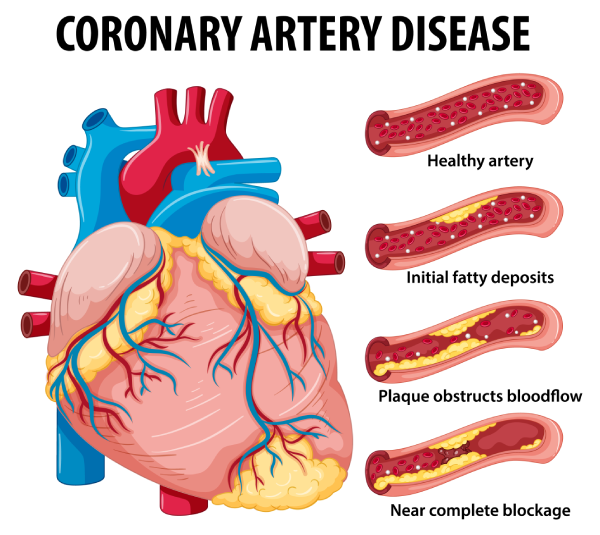
Coronary artery disease (CAD) is the most common heart disease, affecting more than 18 million Americans. Cardiology At Home in Gilbert, Arizona, is a telehealth cardiology practice offering expert CAD management. Zaki Lababidi, MD, FACC, FSCAI, Sharolyn McClurg, NP, and the highly skilled team provide telehealth appointments and home visits to make it easier for patients to get excellent care. Call today or use the online booking button to schedule an appointment.
What is the difference between heart disease and coronary artery disease?
Heart disease refers to any condition that affects the heart. Coronary artery disease (CAD) is one type of heart disease.
CAD is narrowing or blockages in the coronary arteries, the arteries that supply oxygen-rich blood to the heart. The narrowing occurs from a buildup of plaque along the blood vessel walls.
Plaque is made up of cholesterol, minerals, and other substances that circulate in the blood. The narrowing in the arteries increases the heart’s workload, forcing it to pump harder to circulate blood throughout the body.
If the plaque breaks free from the blood vessel, a blood clot may form and block the flow of blood in the heart, causing a heart attack.
What are the signs and symptoms of coronary artery disease?
For many, a heart attack is the first sign of CAD. However, you may notice subtle symptoms as the narrowing in the heart worsens, such as:
- Chest pain during physical activity (angina)
- Shortness of breath
- Fatigue
- Difficulty sleeping
- Dizziness
- Pressure in the chest
- Stomach pain
If you have chest pain, call 911 or go to the nearest emergency room immediately. Chest pain is a heart attack symptom.
When should I see a cardiology specialist for coronary artery disease?
Cardiology At Home recommends scheduling an appointment if you have chest pain, a recent heart attack, or concerns about CAD. You should also schedule an evaluation if CAD runs in your family or if you have diabetes, high cholesterol, or hypertension.
Your Cardiology At Home doctor asks detailed questions about your concerns, medical history, and family history. They may also request vitals such as your height, weight, and blood pressure.
The team may request additional testing, such as an echocardiogram or stress test, to assess heart health and make a formal diagnosis.
What can I do to prevent coronary artery disease?
The Cardiology At Home team takes a proactive approach to heart health and offers heart disease screenings and preventive cardiology. Following a healthy lifestyle and improving how you manage risk factors like hypertension and high cholesterol may lower your risk of CAD.
If you have CAD, the doctor recommends following the same preventive measures. They also prescribe disease-specific medications and may recommend procedures that remove plaque in the arteries to improve blood flow.
Call Cardiology At Home today or schedule your coronary artery consultation using the online booking button.
